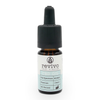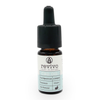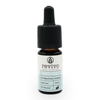CBD for Pain Relief and Inflammation: What The Science Says...

People looking for a safer pain reliever are turning to the natural therapeutic effects of CBD Oils. Should CBD be part of your pain-management regimen? We dig into the scientific research.
There is a prescription drug epidemic in the UK, with more and more people using prescription pain killers which can have a devastating effect when relied upon for extended periods. We even take them every time we get a headache, without even giving it a second thought. But what if the next time you felt one coming on you instead reached for your CBD Oil instead?
CBD has a lot of health related claims against it, such as preventing stress and anxiety but according to research, out of the 62 percent of people who use CBD to treat a medical condition, most use it to manage chronic pain, arthritis and joint pain.
So is CBD Oil really an effective pain killer? We turn to the science to find out.
What types of pain can CBD help with?
Before digging into the research, it's helpful to understand how experts classify "pain." There are 3 main categories of pain we will talk about.
Neuropathic pain
Neuropathic pain arises from damage to the nervous system itself, central or peripheral, either from disease, injury, or pinching. Think: carpal tunnel syndrome or sciatica.
Unlike most other types of pain, neuropathic pain does not usually get better with common painkillers, such as paracetamoland ibuprofen, and other medicines are often used.
Acute, or nociceptive, pain
Nociceptive pain arises from various kinds of trouble in tissues, reported to the brain by the nervous system. This is the type of pain everyone is most familiar with, everything from bee stings and burns and toe stubs to repetitive strain injury, nausea, tumours, and inflammatory arthritis.
Obviously these kinds of pain can and do overlap. Some medical problems, like injuries, can affect both nerves themselves and other tissues, causing both kinds of pain.
Centralised pain
Nociceptive pain which is more like fibromyalgia or some of the other chronic overlapping pain conditions -- migraines, tension headaches -- that have been more difficult to characterise scientifically
Because the different types of pain don't always respond to medication the same way, so it is very difficult to say anything with certainty as it differs on a person-to-person basis. But, with that said, here's what researchers know so far.
So can CBD help with pain?
Although CBD doesn’t directly attach to CB1 or CB2 receptors, it still has a powerful effect on how we feel pain, as evidenced by myriad anecdotal reports and preliminary studies.
Research suggests that like THC, CBD influences CB2 receptors on immune cells and tells the body to dial down its inflammatory response. CBD may do this by blocking chemicals that trigger inflammation in the body.
CBD stops the body from absorbing anandamide, a compound associated with regulating pain. So, increased levels of anandamide in the bloodstream may reduce the amount of pain a person feels.
CBD can also indirectly affect CB1 receptors. By preventing the breakdown of anandamide, CBD is able to increase levels of this endocannabinoid, perhaps leading to improved mood and reduced pain levels.
CBD can also influence another receptor: TRPV1, also called vanilloid receptor 1 or the capsaicin receptor. TRPV1 helps regulate body temperature and influences how we feel pain.
When we eat a chili pepper, capsaicin acts on the TRPV1 receptors in our brain cells, making us feel that burning sensation we associate with spicy foods.
With repeated exposures, these brain cells no longer signal that burning sensation to our brain when capsaicin attaches to TRPV1. This may be why some people have a higher tolerance for spicy foods—their TRPV1 receptors have become desensitized.
But capsaicin does more than make our mouth burn when we eat spicy foods. It also has anti-inflammatory and anti-seizure properties.
The researchers think that CBD behaves in a similar way to capsaicin—except without giving that spicy sensation. Somehow CBD desensitizes TRPV1 receptors, reducing our pain response.
While we still don’t fully understand how CBD relieves pain in the body, it’s clear that it is affecting the body’s nervous system and inflammatory response in a way that reduces overall pain.
Observational studies asking the general public who take CBD oils why they use CBD and if it’s effective, tend to be quite positive. People report using CBD for anxiety, pain, sleep — all things that go hand-in-hand with chronic pain.
CBD is thought to work by reducing inflammation in the brain and nervous system via an effect on cannabinoid and other receptors, ion channels, anandamide (a substance that regulates our response to pain) and enzymes.
An extensive 2018 review on the use of cannabis and cannabidiol products for pain relief stated:
- 22 out of 29 trials investigating cannabinoid use for chronic non-cancer pain (neuropathic pain, fibromyalgia, rheumatoid arthritis, and mixed chronic pain) found a significant analgesic effect and several reported improvements in other outcomes like sleep.
How does CBD interact with the endocannabinoid system?
CBD (cannabidiol) is a compound that is usually extracted from industrial hemp but it has been used medicinally for thousands of years.
Scientists first discovered the endocannabinoid system almost by accident, (Mechoulam et al, 1990), and its two primary receptors: Cannabinoid 1, or CB1, and cannabinoid 2, or CB2. CB1 receptors are mainly located in the brain and central nervous system. CB2 receptors are concentrated in organs relating to the immune system.
The endocannabinoid system plays a crucial role in regulating a broad range of physiological processes that affect our everyday experience - our mood, our energy level, our intestinal fortitude, immune activity, blood pressure, bone density, glucose metabolism, how we experience pain, stress, hunger, and more.
The endocannabinoid system have been shown to induce analgesia in preclinical models of acute nociception and chronic pain states, according to recent research.
Is CBD legal?
Many plants contain cannabinoids, and people often confuse CBD with THC (tetrahydrocannabinol) which is another type of cannabinoid. Unlike THC, CBD does not cause a “high” or euphoric effect because it does not affect the same receptors as THC.
By law, industrial hemp from which CBD is extracted must contain no more than 0.3 percent THC to be considered hemp, otherwise, growers are at risk of prosecution. Products sold within the UK have zero THC, considered to be around 0.05% or less.
What is recommended?
CBD oils may offer pain relief and inflammation relief for neuropathic pains, such as injury, or pinching. Think: carpal tunnel syndrome or sciatica and may also alleviate some acute, or nociceptive pains, such as inflammation and arthritis.
However CBD in combination with THC is recommended by the European Federation of Neurological Societies as a second or third-line treatment for centralised pain in multiple sclerosis, and by Canadian experts as a third-line agent for neuropathic pain.
THC is a controlled substance under the UK drugs act and therefore although preliminary studies suggest that it is more likely to have a stronger analgesic effect on centralised pains from cancer or multiple sclerosis CBD oils are still effective at treating pain and should be considered a natural alternative to traditional pharmaceuticals.
How can CBD help me?
The potential is massive for CBD to help impact the huge opioid reliance we currently see.
- It is not a banned substance and is perfectly suitable for all athletes to use to help their sleep and recovery instead of using anti-inflammatory drugs such as ibuprofen.
- many people are choosing to incorporate CBD into their lives to foster a general sense of relaxation and calm and relieve day to day afflictions such as period pain and stress.
- CBD (cannabidiol) has been under review in connection to sleep for various reasons. A study into how using CBD could help participants who have issues with sleep and anxiety had extremely promising results. The study found that 79% had reduced anxiety and 66% had improved sleep within the first month.
- CBD interacts with the human body in a similar way to anti- anxiety medication; the compound mediates the alterations in the serotonin receptor 5-HT1A (which is responsible for happiness). Studies have revealed that taking CBD reduced social anxiety in participants who underwent stress from a public speaking task.
Other uses
CBD currently has a range of applications and promising possibilities.
These include:
- smoking cessation and drug withdrawal
- treating seizures and epilepsy
- anxiety treatment
- reducing some of the effects of Alzheimer’s, as shown by initial research
- antipsychotic effects on people with schizophrenia
Although more research is required to confirm some uses of CBD oil, it is shaping up as a potentially promising and versatile treatment.
Conclusion
While many studies have suggested CBD oil is helpful for pain, more research is necessary, especially in long-term studies with human subjects.
However, CBD oil does show a lot of potential for pain relief. Anecdotal evidence suggests that it can be used to help manage chronic pain in many cases.
CBD oil is especially promising due to its lack of intoxicating effects and a possible lower potential for side effects than many other pain medications.
CBD Products from Revivo
Choosing quality CBD products is important. A store or online resource may supply CBD, but that doesn’t mean they’re CBD experts.
For any questions or concerns, feel free to turn to Revivo for information and quality.
Don't hesitate to contact us with any questions you have, our friendly team here in the UK are always happy to help.
Anyone who wishes to use CBD should first speak to a doctor about whether it is a good idea, and how much to take.












